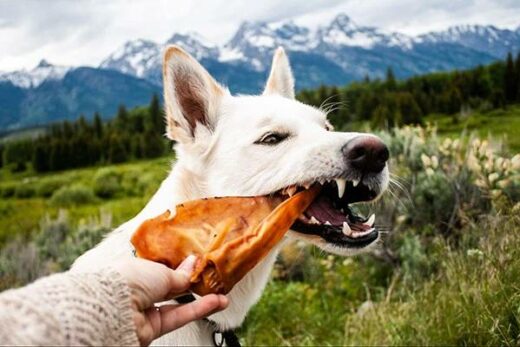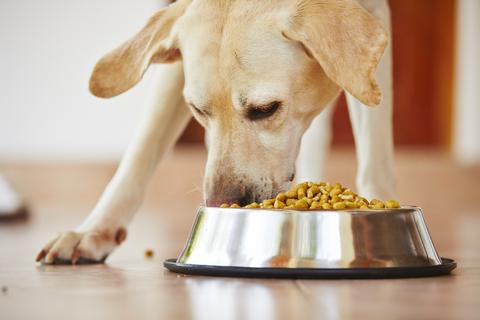Dogs love to eat and they will often consume anything that’s given to them. While most options are somewhat safe, there are a handful that can be very dangerous and are best to avoid giving to them. Below you’ll find more information about some of the most toxic products for dogs, as well as some safe options to consider giving them instead.
Dogs and Dairy: Can Dogs Consume Dairy Products?
While dairy is somewhat safe for dogs to consume, some might have a little bit of trouble with these products as they might be lactose intolerant. This can end up leading to diarrhea or an upset stomach. Some dogs might also be allergic to dairy which can lead to vomiting and itchy, red skin.
What Happens When a Dog Eats Cheese?
The main concern about dairy products is the lactase enzyme. This enzyme works to help break down the lactose in dairy products which is a type of sugar and protein that eventually absorbs itself into the intestines. Because of this, the higher the lactose in the dairy product, the more their dog will have to work to help break it down.
If you’re on the search for some low-lactose dairy products to give your dog, as it does come with a few benefits, you can consider giving them cheese, like Swiss and Cheddar, or lactose-free milk. However, if your dog has an extreme allergic reaction to dairy, it’s best not to give it to them in any form, even if it’s free from lactose.
Dairy for Dogs: Is Cheese Bad for Dogs?
Cheese often contains lower amounts of lactose making them ideal to give your dog if they don’t have severe problems with dairy. This is due to their high protein and calcium content which can be very beneficial for their health.
As mentioned above, some of the best cheeses to give are Swiss and Cheddar as they contain practically zero grams of lactose in them. Make sure not to give your dog excessive amounts of them. This is because they are still high in fat which can lead to an upset stomach and gas.
Nine of the Most Dangerous Foods for Dogs
Avocados
Avocados are very toxic for dogs due to a chemical in them called persin. This fungicidal toxin is created from the interior seed and eventually slips out into the fruit’s flesh. While a small dosage of it won’t necessarily be harmful (it will still make them sick) eating large quantities of it can prove fatal.
If you find that your dog has eaten a large quantity of avocado, they will either start to vomit or have diarrhea. If you find they are vomiting, make sure to keep giving them water to help them stay hydrated. The same goes for diarrhea. Make sure to let your dog go out and relieve themselves, but ensure they get plenty of water when they are done. However, make sure to contact or visit your vet as soon as possible if they have eaten avocado, as if the symptoms last too long, could be deadly.





